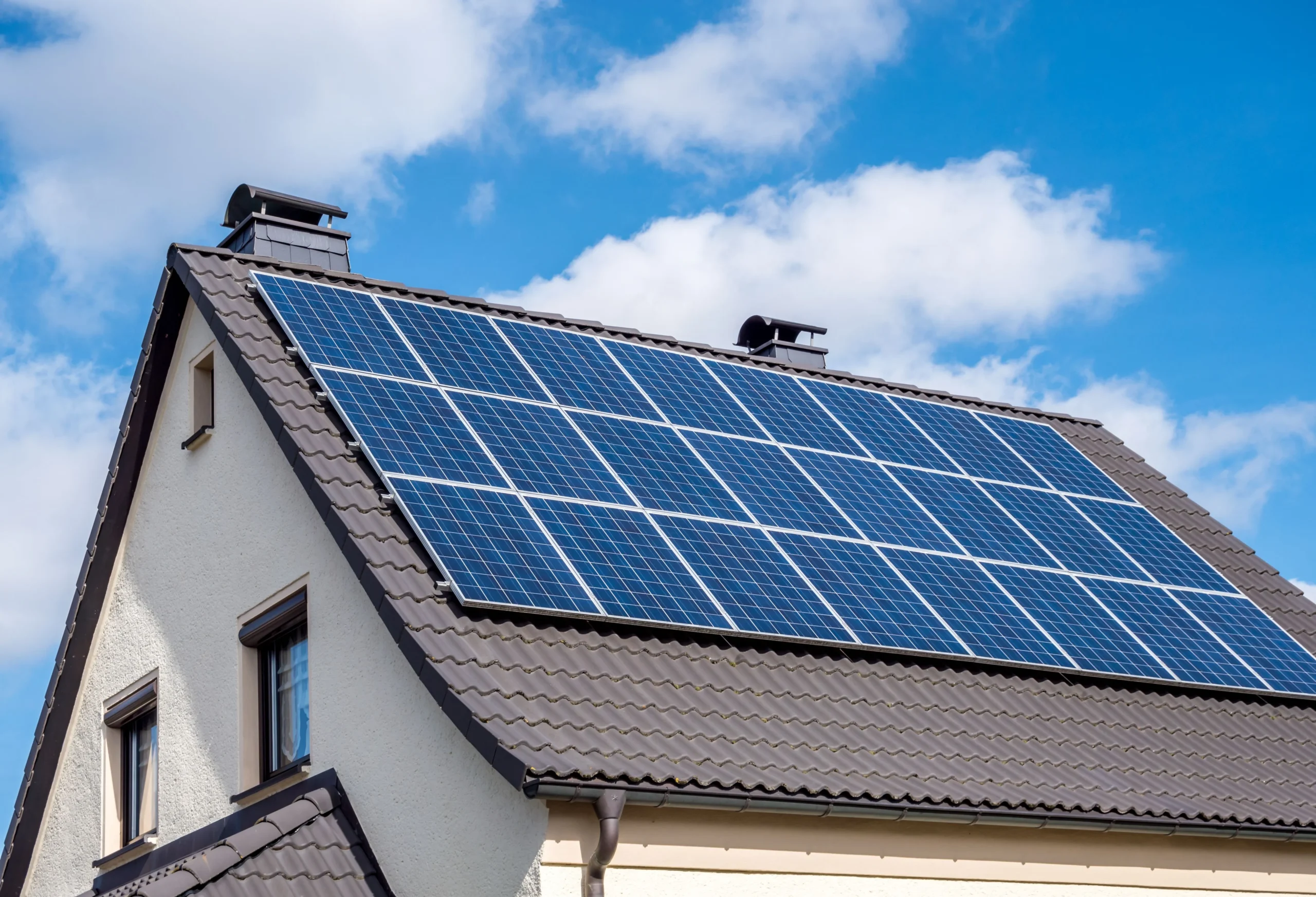How Do Solar Panels Affect Your Conveyancing?
29 February 2024 • 6 min read

See what our customers have to say about us
How Do Solar Panels Affect Your Conveyancing?
Almost anywhere you go in the UK, simply look up onto the rooftops around you, and chances are, you’ll see some black solar panels soaking up some sun. Whether you’re in the middle of a big city or looking across the fields to a farmhouse, solar panels are everywhere. That’s because there’s never been a better time to bring green energy to your home.
If you own solar panels, you could be able to get cheaper home energy costs or even earn a small income from selling your electricity back to energy companies.
If you’re selling your home with solar panels or purchasing a freehold property with installed solar panels, your conveyancing work could differ from the norm. There are a few considerations to keep in mind when buying a home with solar panels. We’ll break them down.
Are homes with solar panels more expensive than those without?
Some people believe that solar panels are an eyesore—an unappealing addition to residential properties. But beauty is truly in the eye of the beholder. For many, solar panels represent an environmental leap forward in accessible green energy, and some are swayed by the perks they offer, such as lower energy bills.
Many people expect homes with solar panels to have a higher value, and they’d be right – sort of. Research suggests that homes with solar panels often come with a slightly higher price tag, although this is marginal. In years gone by, when the cost of installing solar panels could run into the tens of thousands, they could add a hefty chunk to the value of a property. On the other hand, these inefficient panels could take decades to pay themselves off!
In general, solar panels don’t negatively impact the value of a property, but they don’t always add value either.
Do homes with solar panels sell faster?
According to US data, homes with solar panels sell faster than those without. In fact, homes with solar panels spend 20% less time on the market, thanks to their green features.
In the UK, research is a bit harder to find. There is no solid answer to whether a property with solar panels will sell faster. It really depends on the buyer, though. Generally, as people become more environmentally conscious, homes with solar panels will be more desirable and therefore sell faster than those without.
How do solar panels affect my conveyancing?
Most people own the solar panels on their house outright, and if this is your situation, there aren’t really any legal considerations. Instead, the factors that will come into play are general pragmatic ones:
- The general condition of the panels
- Any warranties in place that should be transferred to the buyer
- The future financial benefit that the panels will generate (you may well have added this onto the price of your home already!)
However, suppose you lease the panels or purchase them through a loan secured against the panels or your home more generally. In that case, the lease or loan agreement should be provided to your buyer as part of the conveyancing process, and it may be that their conveyancer has follow-up questions for you and your conveyancer to answer.
If the seller borrowed the money to install the panels, issues may arise regarding any security for repayment that may affect the property, the payment of any outstanding balance on the loan, or possibly the novation of the agreement (and loan repayments) to the buyer.
Is now the best time to consider solar energy for your home?
While we can’t see too far into the future and certainly can’t predict the energy needs of future consumers, now seems like the best time to invest in solar or green energy.
With the cost of living seemingly going through the roof, now is the time to cover that roof in solar panels. As we’ve already said, solar energy can help drastically reduce your energy bills. Of course, you still have to front the cost of installing solar panels, but this cost is now much lower than in previous years.
According to Solar Together, the average time for solar panels to pay for themselves is 12-26 years. The average cost of installation is £4,600, and the average annual saving is between £90 and £240. Of course, this all depends on how many panels you have installed and how much energy you use, but it all helps to make you less dependent on the national grid and saves you a bit of money each month.
If you have a south-facing roof which is not overshadowed by buildings or trees, the energy cost savings plus the income they generate is much higher, seeing savings of around £750 per year. This means the payback is more like 5-10 years.
Looking to the future, several other factors should be considered. One of these is using solar energy to charge an electric car. After 2030, consumers will no longer be able to buy new petrol or diesel cars in the UK, so we’re about to see a massive uptake in the number of electric vehicles on the road, many of which will be charged at home. While recharging electric vehicles already costs far less than refuelling a combustion engine, charging on solar energy alone cuts this cost even further. Who wouldn’t want to charge their car for free?
Conclusion
Overall, it’s clear that solar panels are an excellent investment for many homes. The savings they can generate on your energy bills and the future benefits, such as electric car charging, mean they will only become more important. All of this while helping to offset and reduce the homeowner’s carbon footprint.
When it comes to conveyancing, there are no significant roadblocks to stopping or slowing a property sale. It’s a quick and straightforward process for any conveyancer to follow.
If you’re still unsure and would like to know more about how solar panels could impact your transaction, feel free to get in touch or get a free quote.
You might also like
When a property is ‘sold with vacant possession’, it means that the property should ...
If you do a Google search for conveyancers in your area, it will probably ...

